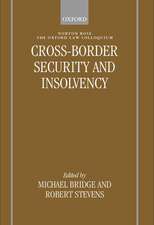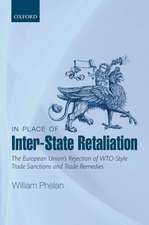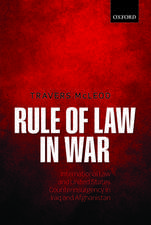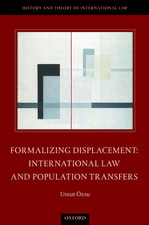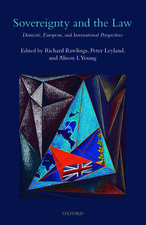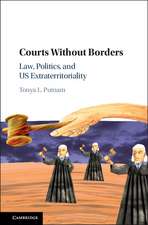Recognizing States: International Society and the Establishment of New States Since 1776
Autor Mikulas Fabryen Limba Engleză Hardback – 25 feb 2010
Preț: 701.60 lei
Preț vechi: 1007.49 lei
-30% Nou
Puncte Express: 1052
Preț estimativ în valută:
134.25€ • 140.54$ • 111.08£
134.25€ • 140.54$ • 111.08£
Carte tipărită la comandă
Livrare economică 26 martie-01 aprilie
Preluare comenzi: 021 569.72.76
Specificații
ISBN-13: 9780199564446
ISBN-10: 0199564442
Pagini: 272
Dimensiuni: 163 x 241 x 25 mm
Greutate: 0.57 kg
Ediția:New.
Editura: OUP OXFORD
Colecția OUP Oxford
Locul publicării:Oxford, United Kingdom
ISBN-10: 0199564442
Pagini: 272
Dimensiuni: 163 x 241 x 25 mm
Greutate: 0.57 kg
Ediția:New.
Editura: OUP OXFORD
Colecția OUP Oxford
Locul publicării:Oxford, United Kingdom
Recenzii
Fabry...has produced a book that is well-written, well-constructed, well-documented, and truly comprehensive. Fabry's book is an exemplary account of the theory, history and practice of recognising new states. His range is impressive, his nuances valid and his scholarship impeccable. Historians, lawyers and international relations specialists should all welcome this book.
The book is highly successful in demonstrating how norms and principles have changed with respect to recognizing states. Fabry is particularly good at clarifying principles and comparing and contrasting them from one period to the next. The cases throughout are well researched and display solid judgment and analysis. The book is crisply written and well organized.
This book is vividly written, well adorned with supporting citations, and one of the best substantive restatements of the law of state recognition. That it features historical details about each period covered, coupled with practical contemporary applications, makes it must reading for anyone in search of expertise on the recognition of statehood.
This work contributes positively to collections emphasizing international relations theory and the evolution and operation of international norms, law, and institutions.
Well-crafted historical chapters ... not over-burdened with theoretical discussions and debate ... [a] rich historical account of two centuries of the birthing of new states.
The book is highly successful in demonstrating how norms and principles have changed with respect to recognizing states. Fabry is particularly good at clarifying principles and comparing and contrasting them from one period to the next. The cases throughout are well researched and display solid judgment and analysis. The book is crisply written and well organized.
This book is vividly written, well adorned with supporting citations, and one of the best substantive restatements of the law of state recognition. That it features historical details about each period covered, coupled with practical contemporary applications, makes it must reading for anyone in search of expertise on the recognition of statehood.
This work contributes positively to collections emphasizing international relations theory and the evolution and operation of international norms, law, and institutions.
Well-crafted historical chapters ... not over-burdened with theoretical discussions and debate ... [a] rich historical account of two centuries of the birthing of new states.
Notă biografică
Mikulas Fabry is an Assistant Professor in the Sam Nunn School of International Affairs at the Georgia Institute of Technology. His research focuses on questions of state and governmental legitimacy in international relations and he published several journal articles and chapters in edited volumes on these topics. Prior to his current position, Dr. Fabry was an Andrew W. Mellon Postdoctoral Fellow and Lecturer at Smith College.

